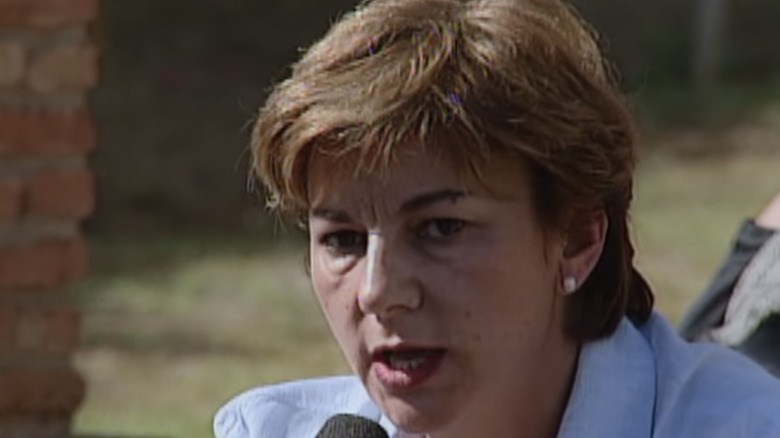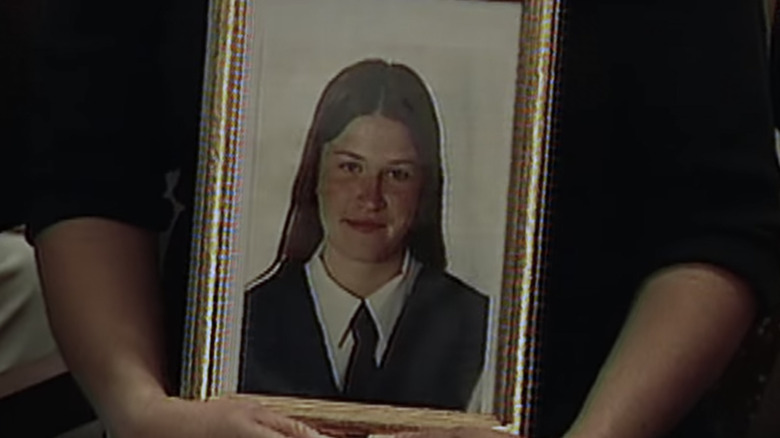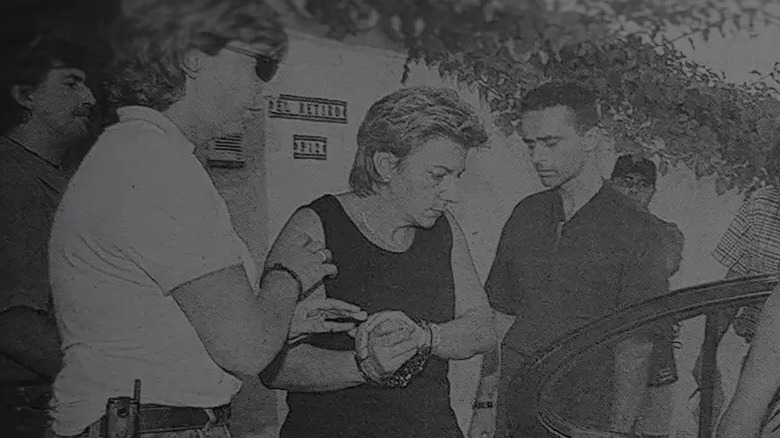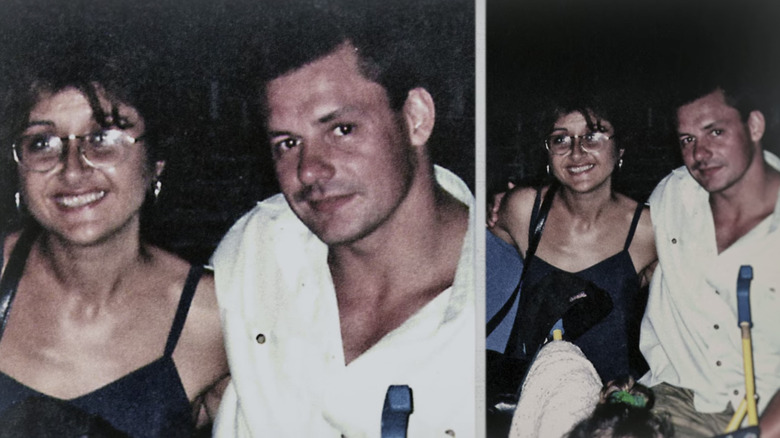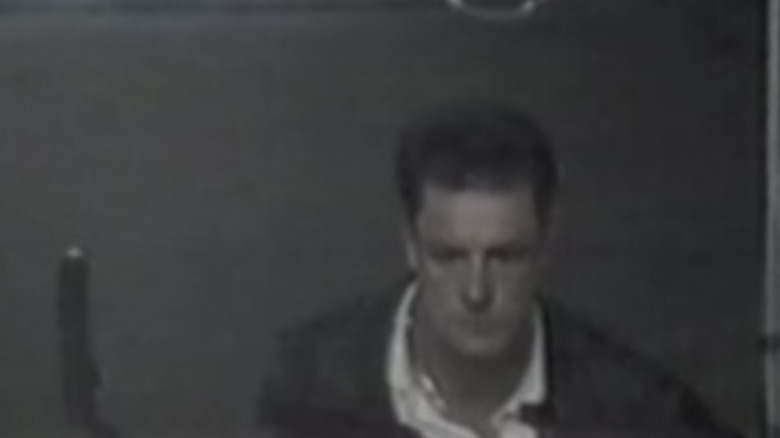How Accurate Is Netflix's Murder By The Coast?
The following article includes allegations of domestic abuse and sexual assault.
Netflix's "Murder by the Coast" concerns the deaths of Rocio Wanninkhof and Sonia Carabantes and the hunt for their killer. On the night of October 9, 1999, Wanninkhof, then 19 years old, went missing on the short walk between her boyfriend's house and her own home on Spain's Costa Del Sol.
Four years later, in 2003, after Rocio's supposed killer had been tried and convicted, Sonia Carabantes disappeared under similar circumstances from the steps of her home in Coín, Spain. Sadly, the bodies of both women were found weeks after their deaths in nearby areas.
"Murder by the Coast" delves into the murders, investigation, and the media circus around the case. In 2000, Maria Dolores Vazquez was convicted of the brutal murder of Wanninkhof, and sentenced to fifteen years in prison. While she sat in confinement, the journalists and investigators looking into the disappearance of Carabantes noticed key similarities between the two women's deaths. DNA evidence found at both crime scenes proved that Vazquez was innocent. The new Netflix documentary sets out to accurately tell the sad story that personally affected many individuals, from London to Spain, starting in 1985.
Vazquez was like a second mother to Rocio Wanninkhof
"Murder by the Coast" retells the tragic tale through archives, interviews, and footage of the case. Wanninkhof's mother, Alicia Hornos, tells her account of how the case unfolded. She details the day after her daughter disappeared, and her search around town for her. While out on a walk with a friend, Hornos ran across a pool of blood and a pair of sneakers in a vacant lot. Hornos recognized the sneakers as belonging to her daughter and immediately called the police.
Once her body was found several weeks later, the Guardia Civil began looking at Hornos' ex-girlfriend, Vazquez, as a suspect. Vazquez and Hornos had been in a relationship from 1982 to 1988 and initially remained on good terms after their split, via The Independent, but had fallen out four years prior to the murder. According to Episode 173 of the podcast "Casefile," Hornos told police Vazquez was like a second mother to Wanninkhof and her other two daughters, just as noted in the documentary. Toward the end of their relationship, however, Vazquez and Wanninkhof were at odds with each other.
The film shows how Vazquez was persecuted for her homosexuality
Pieces of circumstantial evidence mounted against Vazquez. Among them, authorities said they found the same trash bags used at the scene in her home, and her alibi for the night of the murder was shaky. Furthermore, both the police and the media painted Vazquez as a cold, calculating, and vengeful ex-lover. "She wasn't nice, she wasn't likable, and she was a lesbian in 1999," explained one journalist for the documentary. During Vazquez's trial, the prosecution used her homosexuality against her as part of their argument. News footage covering the case shows the angry public calling for her punishment.
After her conviction, Vazquez appealed on the basis of the flawed argument. The court agreed, and she was awaiting re-trial when Tony Alexander King was arrested for the murders of Wanninkhof and Carabantes. Following her release, Vazquez said the entire process was like a public lynching. She spoke again publicly 10 years later, reaffirming her innocence and protesting against a country that still treated her like she was guilty, as reported by El Pais. She currently lives in a small town in East London.
"Murder by the Coast" goes into further detail surrounding the injustices in the case. The documentary has brought new attention to the fact that no official apologies or compensation have ever been issued to Vazquez for her wrongful conviction and treatment during her 17-month stay in prison.
The documentary covers the real killer's earlier crimes
Evidence found at the Rocio Wanninkhof murder scene included a discarded cigarette butt. DNA found on the item matched that of an unknown male. In the 2003 murder of Carabantes, biological DNA evidence found on her body matched the DNA discovered at the Wanninkhof scene.
The public distribution of the information spurred Cecilia King to contact the police. She told authorities that she suspected her estranged husband, Tony Alexander King, of the murders. In "Murder by the Coast," Cecilia recounts her history with Tony — they met in 1995 in London, had a child, married, and moved to Spain in 1997. She had been suspicious of him for some time, and after his behavior on the same night as Wanninkhof's disappearance, she left him.
The film goes into detail about King's previous crimes, back when he was known by his real name of Anthony Bromwich. He had been convicted in 1986 in London for the strangulation and sexual assault of five women — one of whom, Christine Blewer, recounted her assault in the documentary — and was known to the public as The Holloway Strangler. According to BBC News, the judge at the time called him a "Jekyll and Hyde monster" with sexual inadequacies. After his release in 1991, he was re-arrested for another assault and imprisoned until 1996.
Shortly after his capture, Vazquez was released after spending 519 days in prison and exonerated.
King's trial takes center stage toward the end
Upon his 1996 release, Anthony Bromwich changed his name to Tony King, and met, then married Cecilia Pantoja. In 1997, he was identified in another assault via CCTV footage on BBC One's "Crimewatch," which was featured in "Murder by the Coast." It was at this point that the Kings left for Spain, where King lived under the radar on Costa Del Sol. It was later revealed Interpol had asked the Guardia Civil to keep an eye on King, but no further action was taken by authorities.
After the DNA match, King was arrested at his home. During his trial, which is highlighted toward the end of the documentary, King wrote letters to the victims' mothers, confessing and asking for forgiveness (via the BBC), but later claimed he was innocent. He was found guilty of the murders of both women, as well as the attempted rape of another woman in Benalmadena, Spain, according to SUR. He is currently serving 62 years. Other victims of King's emerged after the trial, and Scotland Yard set up a task force to help identify additional victims, per The Guardian.
If you or anyone you know has been a victim of sexual assault, help is available. Visit the Rape, Abuse & Incest National Network website or contact RAINN's National Helpline at 1-800-656-HOPE (4673).
